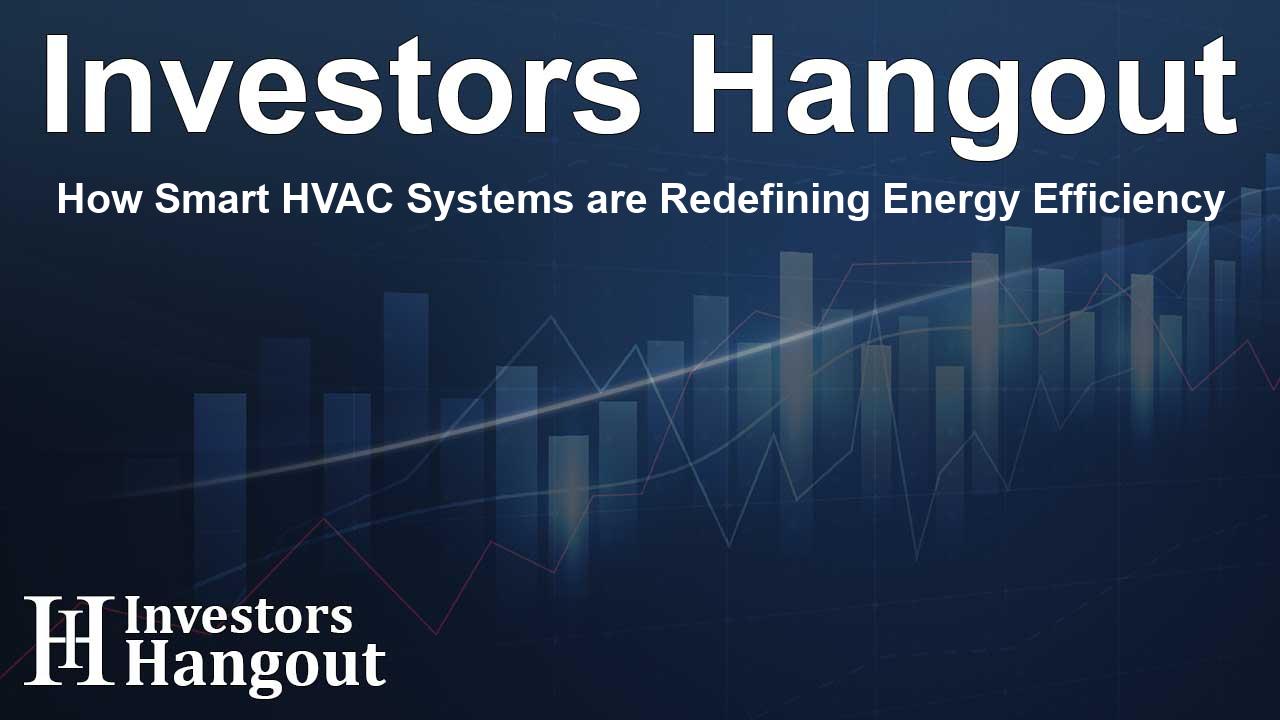How Smart HVAC Systems are Redefining Energy Efficiency

Transforming HVAC: Efficiency Meets Technology
The global HVAC industry is experiencing an unprecedented transformation, driven by advancements in technology and a commitment to sustainability. With the integration of Internet of Things (IoT) devices, cloud computing, and artificial intelligence (AI), we are witnessing a significant redefinition of heating, ventilation, and air conditioning systems.
Enhancing Operational Efficiency
Recent analysis highlights the critical role that smart and connected HVAC solutions play in boosting operational efficiency. These systems are designed to reduce energy consumption while promoting long-term sustainability. IoT sensors, combined with cloud-based platforms, facilitate real-time monitoring and predictive analytics, thereby minimizing downtime and maximizing performance across residential, commercial, and industrial settings. Utility Bidder plays a role in helping businesses navigate energy efficiency solutions, making it easier to manage costs while optimizing HVAC performance.
Artificial Intelligence in HVAC
The incorporation of AI and machine learning (ML) technologies is key to unlocking valuable insights. These tools allow for the optimization of system operations, extending the lifespan of equipment, and customizing climate control to suit the occupants’ needs better. This innovation not only enhances comfort but also aids in making smarter retrofitting decisions and better design planning for both new constructions and existing structures.
Prioritizing Cybersecurity in Smart HVAC Systems
As HVAC systems become integral to larger building automation and IT networks, the importance of cybersecurity has become more pronounced. Ensuring the security of these smart systems has turned into a pressing priority, given their vulnerability to threats. Experts advocate for a zero-trust approach combined with continuous monitoring and network segmentation to bolster resilience against potential breaches.
Real-Time Threat Detection
AI and ML are crucial for real-time threat detection, enabling the identification of unauthorized devices and abnormal behavior. Implementing integrated cybersecurity solutions, including device authentication and ransomware prevention, is becoming essential for the next-generation HVAC deployments.
Innovations Driving Energy Efficiency
Environmental regulations and sustainability goals compel HVAC manufacturers to adopt more energy-efficient methods. The rising demand for precision cooling in data centres, driven by cloud computing, is leading to the development of advanced, scalable HVAC systems that promise exceptional performance.
HVAC-as-a-Service Trend
An evolving business model, known as HVAC-as-a-Service (HVACaaS), is changing customer engagement with HVAC providers. This model allows for flexible subscription-based offerings, minimizing capital expenditures while ensuring proactive service and increased customer satisfaction.
Interoperability for Smarter Buildings
To achieve more intelligent building systems, the adoption of open communication protocols like BACnet/IP and Modbus is crucial. These protocols facilitate seamless integration between HVAC solutions and broader building management systems, fostering an agnostic vendor environment and providing greater flexibility in upgrading and expanding systems.
As the HVAC industry progresses, companies that embrace digital transformation, prioritize robust cybersecurity measures, and adhere to sustainable practices will likely emerge as leaders in constructing smart buildings and connected ecosystems. The ongoing shift in HVAC technology signifies a pivotal moment for the industry, setting the stage for smarter solutions that can adapt to the evolving needs of consumers and businesses alike.
Frequently Asked Questions
What are smart HVAC systems?
Smart HVAC systems leverage technology such as IoT, AI, and ML to enhance efficiency, monitor performance, and optimize energy usage in various environments.
How do smart HVAC systems enhance energy efficiency?
These systems utilize real-time data and predictive analytics to minimize energy consumption and improve operational efficiency, reducing costs and environmental impact.
Why is cybersecurity important for HVAC systems?
Cybersecurity is crucial for protecting connected HVAC systems from unauthorized access or breaches, ensuring the integrity and safety of building management.
What is HVAC-as-a-Service?
HVAC-as-a-Service is a subscription-based model that allows customers to access HVAC services without the need for upfront capital expenditure, ensuring flexible and efficient service delivery.
How can interoperability benefit HVAC systems?
Interoperability supports seamless integration between different systems and protocols, promoting flexibility in upgrades and ensuring compatibility across various technologies.
About The Author
Contact Addison Perry privately here. Or send an email with ATTN: Addison Perry as the subject to contact@investorshangout.com.
About Investors Hangout
Investors Hangout is a leading online stock forum for financial discussion and learning, offering a wide range of free tools and resources. It draws in traders of all levels, who exchange market knowledge, investigate trading tactics, and keep an eye on industry developments in real time. Featuring financial articles, stock message boards, quotes, charts, company profiles, and live news updates. Through cooperative learning and a wealth of informational resources, it helps users from novices creating their first portfolios to experts honing their techniques. Join Investors Hangout today: https://investorshangout.com/
The content of this article is based on factual, publicly available information and does not represent legal, financial, or investment advice. Investors Hangout does not offer financial advice, and the author is not a licensed financial advisor. Consult a qualified advisor before making any financial or investment decisions based on this article. This article should not be considered advice to purchase, sell, or hold any securities or other investments. If any of the material provided here is inaccurate, please contact us for corrections.
